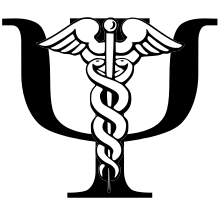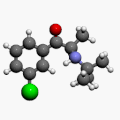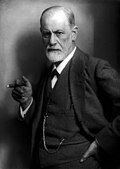The Psychiatry Portal Psychiatry is the medical specialty devoted to the diagnosis, prevention, and treatment of deleterious mental conditions. These include various matters related to mood, behaviour, cognition, perceptions, and emotions. Initial psychiatric assessment of a person begins with creating a case history and conducting a mental status examination. Physical examinations, psychological tests, and laboratory tests may be conducted. On occasion, neuroimaging or other neurophysiological studies are performed. Mental disorders are diagnosed in accordance with diagnostic manuals such as the International Classification of Diseases (ICD), edited by the World Health Organization (WHO), and the Diagnostic and Statistical Manual of Mental Disorders (DSM), published by the American Psychiatric Association (APA). The fifth edition of the DSM (DSM-5), published in May 2013, reorganized the categories of disorders and added newer information and insights consistent with current research. Treatment may include psychotropics (psychiatric medicines) and psychotherapy, and also other modalities such as assertive community treatment, community reinforcement, substance-abuse treatment, and supported employment. Treatment may be delivered on an inpatient or outpatient basis, depending on the severity of functional impairment or risk to the individual or community. Research within psychiatry is conducted on an interdisciplinary basis with other professionals, such as epidemiologists, nurses, social workers, occupational therapists, and clinical psychologists. (Full article...) Selected article  Clinically, bupropion serves as an atypical antidepressant fundamentally different from most commonly prescribed antidepressants such as selective serotonin reuptake inhibitors (SSRIs). It is an effective antidepressant on its own, but is also popular as an add-on medication in cases of incomplete response to first-line SSRI antidepressants. In contrast to many other antidepressants, it does not cause weight gain or sexual dysfunction. The most important side effect is an increase in risk for epileptic seizures, which caused the drug to be withdrawn from the market for some time and then caused the recommended dosage to be reduced. (Full article...) Selected image The Scream (Skrik, 1893), by expressionist painter Edvard Munch. A well known artistic representation of angst image credit: public domain (US)
WikiProjectsSelected biography Freud qualified as a doctor of medicine at the University of Vienna in 1881, and then carried out research into cerebral palsy, aphasia and microscopic neuroanatomy at the Vienna General Hospital. He was appointed a university lecturer in neuropathology in 1885 and became an affiliated professor (professor extraordinarius) in 1902. In creating psychoanalysis, a clinical method for treating psychopathology through dialogue between a patient and a psychoanalyst, Freud developed therapeutic techniques such as the use of free association and discovered transference, establishing its central role in the analytic process. Freud’s redefinition of sexuality to include its infantile forms led him to formulate the Oedipus complex as the central tenet of psychoanalytical theory. His analysis of dreams as wish-fulfillments provided him with models for the clinical analysis of symptom formation and the mechanisms of repression as well as for elaboration of his theory of the unconscious as an agency disruptive of conscious states of mind. Freud postulated the existence of libido, an energy with which mental processes and structures are invested and which generates erotic attachments, and a death drive, the source of repetition, hate, aggression and neurotic guilt. In his later work Freud developed a wide-ranging interpretation and critique of religion and culture. Psychoanalysis remains influential within psychotherapy, within some areas of psychiatry, and across the humanities. As such, it continues to generate extensive and highly contested debate with regard to its therapeutic efficacy, its scientific status, and whether it advances or is detrimental to the feminist cause. (Full article...) General imagesThe following are images from various psychiatry-related articles on Wikipedia.
Related portalsTopicsSubcategoriesAssociated WikimediaThe following Wikimedia Foundation sister projects provide more on this subject:
Discover Wikipedia using portals |
































